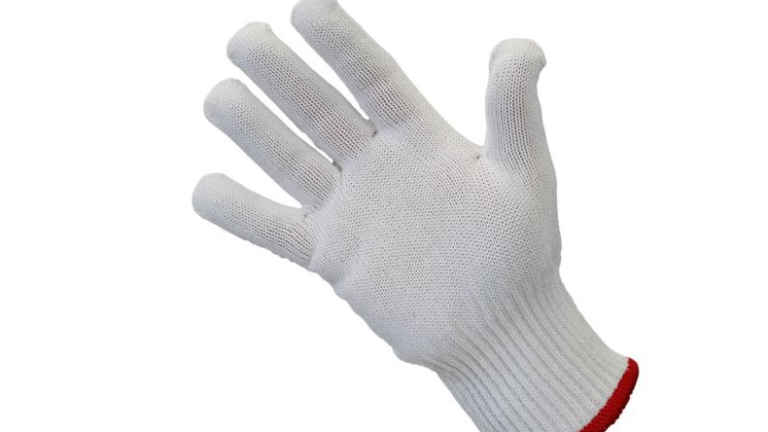When it comes to DIY projects, safety should always be a top priority. Whether you’re handling sharp tools, working with glass, or engaging in woodworking, protecting your hands is crucial. This is where cut-resistant gloves come into play.
So, we are going to split this article into four sections.
- Firstly, we’ll look at how essential cut-resistant gloves, chain gloves, and steel gloves are and what is essential in the chain.
- Secondly, We’ll take a look at the top cut-resistant gloves for DIY enthusiasts
- Thirdly, we’ll examine some advice on where to buy cut-resistant gloves in the UK.
- Lastly, let’s explore the evolution and importance of PPE in the industry. We’ve got plenty to get through, so let’s explore…
Why Cut-Resistant Gloves Are Essential
Cut-resistant gloves are designed to protect your hands from cuts and abrasions while maintaining flexibility and comfort. They are made from materials like:
- Kevlar
- Dyneema
- Stainless Steel…
Providing varying protection levels. These gloves are indispensable for anyone who frequently works with sharp objects or tools.
Types of Cut-Resistant Gloves
Chain Gloves
- Description: Made from interlocking metal rings, chain gloves offer the highest level of cut resistance. They are commonly used in industries like butchery and metalworking.
- Best For: High-risk tasks involving sharp blades or heavy-duty cutting tools.
Steel Gloves
- Description: These gloves incorporate stainless steel fibres into the fabric, providing excellent cut resistance while remaining flexible.
- Best For: Tasks that require both dexterity and protection, such as handling glass or sharp metal edges.
High-Performance Polyethylene (HPPE) Gloves
- Description: Made from HPPE fibres, these gloves are lightweight and comfortable, offering good cut resistance and flexibility.
- Best For: General DIY tasks, woodworking, and gardening.
Top Cut Resistant Gloves for DIY Enthusiasts
NoCry Cut Resistant Gloves
- Features: Made from a blend of ultra-high molecular weight polyethylene, glass fibre, and Spandex. These gloves are four times stronger than leather and provide excellent dexterity.
- Best For: General DIY tasks, kitchen use, and woodworking.
DEX FIT Cut Resistant Gloves
- Features: These gloves offer a snug fit with a 3D comfort stretch, making them ideal for tasks that require precision. They are also touchscreen-compatible.
- Best For: Detailed DIY projects, electronics, and handling small parts.
Dowellife Cut Resistant Gloves
- Features: Food-grade level 5 protection, making them suitable for kitchen and workshop use. They are also machine washable.
- Best For: Kitchen tasks, woodworking, and general DIY projects.
Where to Buy Cut-resistant Gloves in the UK
- Amazon UK
A vast selection of cut-resistant gloves from various brands, including NoCry and DEX FIT. Convenient for online shopping with customer reviews.
- SafetyGloves
Specialises in protective gloves, offering a variety of cut-resistant options suitable for different industries and DIY tasks.
Sure, you can use these guys as an online catalogue but don’t expect much else. But for top selection and industry experience from top-to-bottom, you better to look up Kentmaster UK, their advice alone can make the difference in you getting the right cut-resistant gloves and many other PPE items.
The Evolution and Importance of PPE in the Industry
Personal Protective Equipment (PPE) has a long history, with its roots tracing back to ancient times when soldiers wore armour to protect themselves in battle.
However, the modern concept of PPE as we know it began to take shape during the Industrial Revolution when the need to protect workers from the hazards of machinery and industrial processes became apparent.
The introduction of the Occupational Safety and Health Act in 1970 marked a significant milestone, making PPE a legal requirement in many industries to ensure worker safety.
Importance of PPE in Abattoirs and Slaughterhouses
In abattoirs and slaughterhouses, PPE is crucial for several reasons:
Protection from Physical Injuries
- Workers handle sharp tools and heavy machinery, making them susceptible to cuts, punctures, and other injuries. Cut-resistant gloves, chain gloves, and steel gloves are essential to protect hands from these hazards.
Hygiene and Sanitation
- Maintaining a sanitary environment is vital to prevent contamination of meat products. PPE such as aprons, gloves, and masks help ensure that workers do not introduce contaminants into the processing area.
Chemical Protection
- Workers may be exposed to cleaning agents and other chemicals used in the sanitation process. PPE like gloves and protective clothing shield them from harmful substances.
Overview of PPE
From abattoirs and slaughterhouses to butchers and professional kitchens, PPE plays a vital role in ensuring the safety and hygiene of workers and the products they handle.
PPE is an indispensable part of the food processing and preparation industry. It provides protection against physical injuries, maintains sanitary conditions, and shields against chemical hazards.
Investing in high-quality PPE not only safeguards workers but also enhances operations’ overall efficiency and safety.
SUMMARY
Investing in a good pair of cut-resistant gloves is essential for any DIY enthusiast. They protect your hands from potential injuries and allow you to work with confidence and precision. Remember when it comes to
where to buy cut-resistant gloves in the UK – remember Kenmaster UK and get yourself and your team set. Whether you choose chain gloves, steel gloves, or HPPE gloves, select the right type for your specific needs. Stay safe, and enjoy your DIY projects.

